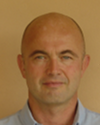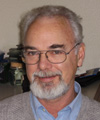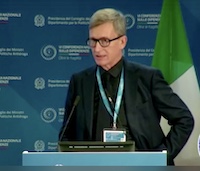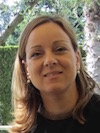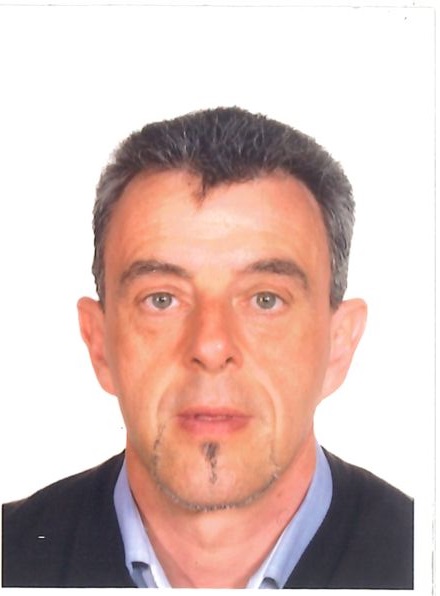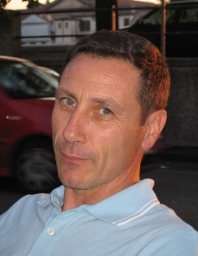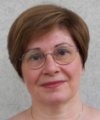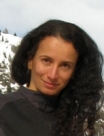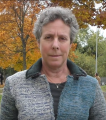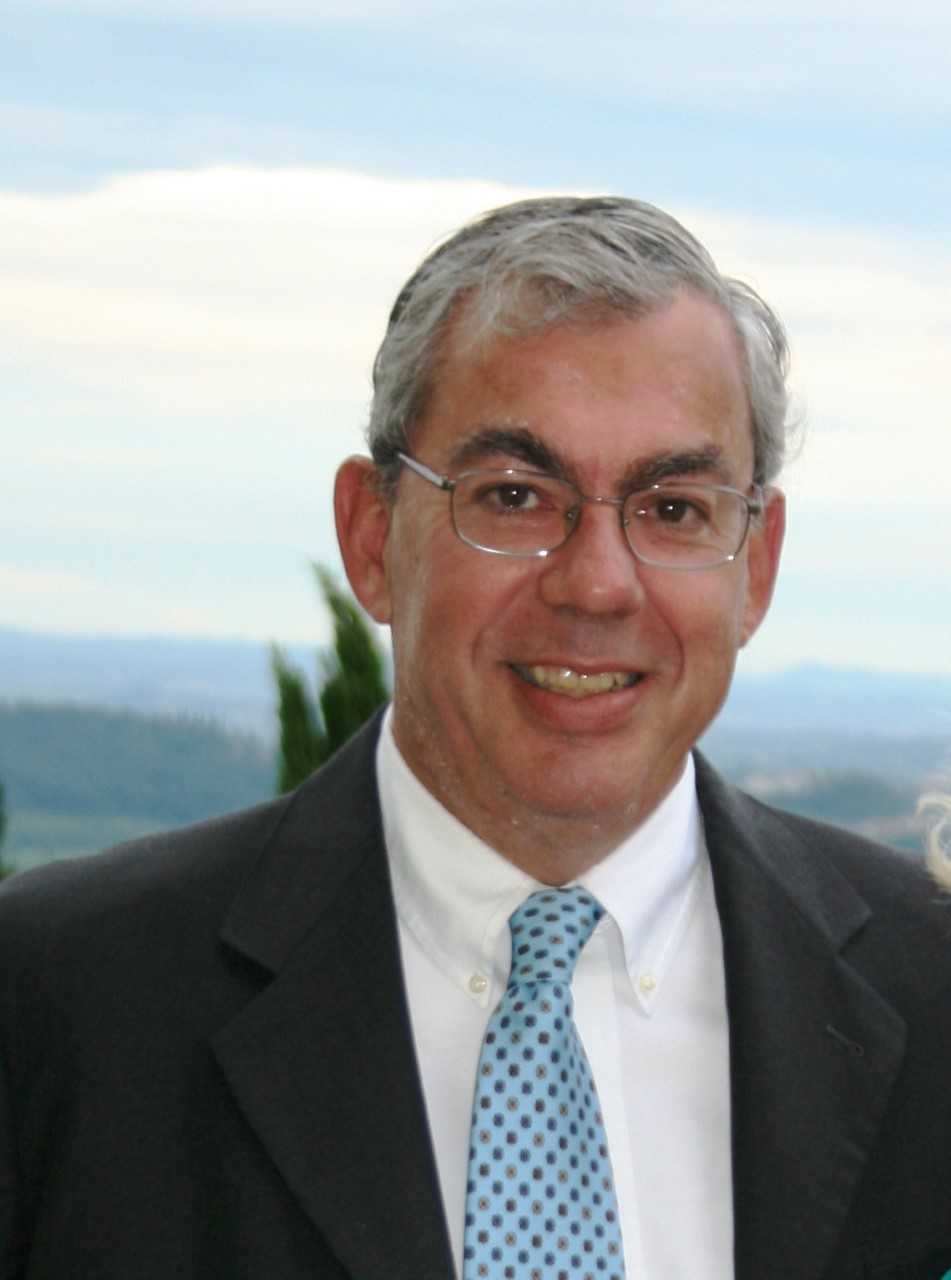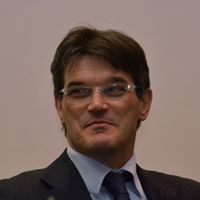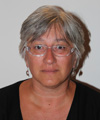Studying at the University of Verona
Here you can find information on the organisational aspects of the Programme, lecture timetables, learning activities and useful contact details for your time at the University, from enrolment to graduation.
Academic calendar
The academic calendar shows the deadlines and scheduled events that are relevant to students, teaching and technical-administrative staff of the University. Public holidays and University closures are also indicated. The academic year normally begins on 1 October each year and ends on 30 September of the following year.
Course calendar
The Academic Calendar sets out the degree programme lecture and exam timetables, as well as the relevant university closure dates..
| Period | From | To |
|---|---|---|
| I semestre | Oct 2, 2017 | Jan 26, 2018 |
| II semestre | Mar 5, 2018 | Jun 1, 2018 |
| Session | From | To |
|---|---|---|
| sessione invernale 2017/2018 - sessione straordinaria 2016/2017 | Jan 29, 2018 | Feb 28, 2018 |
| sessione estiva 2017/2018 | Jun 4, 2018 | Jul 6, 2018 |
| sessione autunnale 2017/2018 | Aug 27, 2018 | Sep 28, 2018 |
| Sessione invernale 2018/2019 - sessione straordinaria 2017/2018 | Jan 28, 2019 | Feb 28, 2019 |
| Session | From | To |
|---|---|---|
| sessione straordinaria 2016/2017 | Mar 19, 2018 | Apr 10, 2018 |
| sessione estiva 2017/2018 | Jul 9, 2018 | Jul 27, 2018 |
| sessione autunnale 2017/2018 | Oct 15, 2018 | Nov 5, 2018 |
| sessione straordinaria 2017/2018 | Mar 18, 2019 | Apr 5, 2019 |
Exam calendar
Exam dates and rounds are managed by the relevant Exercise Science Teaching and Student Services Unit.
To view all the exam sessions available, please use the Exam dashboard on ESSE3.
If you forgot your login details or have problems logging in, please contact the relevant IT HelpDesk, or check the login details recovery web page.
Should you have any doubts or questions, please check the Enrollment FAQs
Academic staff
 paola.cesari@univr.it
paola.cesari@univr.it
 vdurigon@katamail.com
vdurigon@katamail.com
 lonardifabiola@gmail.com
lonardifabiola@gmail.com
 dino.mascalzoni@univr.it
dino.mascalzoni@univr.it
 mariateresa.muraca@univr.it
mariateresa.muraca@univr.it
 alberto.nuvolari@gmail.com
alberto.nuvolari@gmail.com
 stefano-venturi@libero.it
stefano-venturi@libero.it
Study Plan
The Study Plan includes all modules, teaching and learning activities that each student will need to undertake during their time at the University.
Please select your Study Plan based on your enrollment year.
1° Year
| Modules | Credits | TAF | SSD |
|---|
2° Year activated in the A.Y. 2018/2019
| Modules | Credits | TAF | SSD |
|---|
3° Year activated in the A.Y. 2019/2020
| Modules | Credits | TAF | SSD |
|---|
| Modules | Credits | TAF | SSD |
|---|
| Modules | Credits | TAF | SSD |
|---|
| Modules | Credits | TAF | SSD |
|---|
| Modules | Credits | TAF | SSD |
|---|
Legend | Type of training activity (TTA)
TAF (Type of Educational Activity) All courses and activities are classified into different types of educational activities, indicated by a letter.
Human Physiology (2018/2019)
Teaching code
4S000621
Academic staff
Coordinator
Credits
12
Language
Italian
Scientific Disciplinary Sector (SSD)
BIO/09 - PHYSIOLOGY
Period
I SEMESTRE dal Oct 1, 2018 al Jan 25, 2019.
Learning outcomes
• Learning the basic functions of the human body intended as a set of organs and systems by integrating and complementing the existing knowledge of physics, chemistry, biochemistry, anatomy and biology.
• Learning how to apply the scientific method to the analysis of physiological responses to stresses such as physical exercise.
• Identifying the functional purpose of the physiological systems understanding their role in the maintenance of homeostasis of human organism.
• Acquire the fundamental physiological basis of motor control in humans, including the physiology of the sense organs.
Program
Preliminary general knowledge
In order to understand the course of Physiology, you must have first assimilated the basics of Chemistry, Physics, Biochemistry and Mathematics, in particular:
• Chemistry: the concept of pH, molarity, colligative properties of solutions, osmolality and osmotic pressure, diffusion.
• Biochemistry: biological macromolecules, their classification and function, the main metabolic pathways, enzyme kinetics and mitochondrial enzymes.
• Physics: physics of gases, electrology, surface tension, Laplace's law, the basics of mechanics, statics and dynamics of fluids, laws of thermodynamics.
• Biology: biophysical characteristics of the cell membrane; transport mechanisms through the membrane; mechanisms of cell regeneration.
• Mathematics: the concept of the logarithm, the concept of function and axes, functions, linear, power, exponential; methods of manipulation of logarithms, the concepts of derivative and integral; units of the international system.
Topics
1. Principles of general physiology and biophysics of the cell
2. Sensory systems
3. Physiology and biomechanics of striated muscle
4. Motor control (spinal and supraspinal mechanisms)
5. The autonomic nervous system
6. Physico-chemical characteristics of the blood; coagulation and hemostasis
7. Cardiovascular physiology: heart and circulation Regulation of acid-base
8. Respiration
9. Renal Physiology: filtration, reabsorption, secretion and excretion
10. Acid-base regulation
11. Fluid and electrolyte balance
12. Metabolism and thermoregulation
13. Gastrointestinal Physiology
14. Physiology of the endocrine system
15. Physiology of muscular exercise
Please have a look at the Course Contents (attached in TEACHING AIDS)
| Author | Title | Publishing house | Year | ISBN | Notes |
|---|---|---|---|---|---|
| Di Prampero PE, Veicsteinas A | Fisiologia dell'uomo | Edi-ermes Milano | 2002 | ||
| Rhoades R, Pflanzer R | Fisiologia generale e umana | Ed. Piccin, Padova | 2004 | ||
| Grassi Negrini Porro | Fisiologia Umana (Edizione 1) | Poletto | 2015 | ||
| Silverthorn | Fisiologia umana. Un approccio integrato | Pearson | 2020 | 8891902179 |
Examination Methods
The exam consists of a multiple-choice test (80 questions in 150 minutes) . The minimum score for the written examination is 48/80. The outcome of the Exam is communicated on the same day online, on the alert page of the Department of Neuroscience, Biomedicine and Movement: http://www.dsnm.univr.it/?ent=avviso&dest=200 Candidates must notify the vote within a maximum time of 7 days. In the absence of communication, the corresponding evaluation in thirtieths will be automatically recorded.
Teaching materials e documents
-
 00_Course program
(pdf, it, 255 KB, 31/10/18)
00_Course program
(pdf, it, 255 KB, 31/10/18)
-
 01_Programma
(pdf, it, 273 KB, 31/10/18)
01_Programma
(pdf, it, 273 KB, 31/10/18)
-
 CARDIOV 1
(vnd.ms-powerpoint, it, 8142 KB, 10/10/18)
CARDIOV 1
(vnd.ms-powerpoint, it, 8142 KB, 10/10/18)
-
 CARDIOV 2
(vnd.ms-powerpoint, it, 3565 KB, 01/10/18)
CARDIOV 2
(vnd.ms-powerpoint, it, 3565 KB, 01/10/18)
-
 CARDIOV 3
(vnd.ms-powerpoint, it, 1894 KB, 01/10/18)
CARDIOV 3
(vnd.ms-powerpoint, it, 1894 KB, 01/10/18)
-
 CARDIOV 4
(vnd.ms-powerpoint, it, 2388 KB, 01/10/18)
CARDIOV 4
(vnd.ms-powerpoint, it, 2388 KB, 01/10/18)
-
 CARDIOV 5
(vnd.ms-powerpoint, it, 10193 KB, 01/10/18)
CARDIOV 5
(vnd.ms-powerpoint, it, 10193 KB, 01/10/18)
-
 CARDIOV 6
(vnd.ms-powerpoint, it, 2028 KB, 01/10/18)
CARDIOV 6
(vnd.ms-powerpoint, it, 2028 KB, 01/10/18)
-
 CARDIOV 7
(vnd.ms-powerpoint, it, 1787 KB, 01/10/18)
CARDIOV 7
(vnd.ms-powerpoint, it, 1787 KB, 01/10/18)
-
 CARDIOV 8
(vnd.ms-powerpoint, it, 2229 KB, 01/10/18)
CARDIOV 8
(vnd.ms-powerpoint, it, 2229 KB, 01/10/18)
-
 CARDIOV 9
(vnd.ms-powerpoint, it, 701 KB, 01/10/18)
CARDIOV 9
(vnd.ms-powerpoint, it, 701 KB, 01/10/18)
-
 ENDOCR 1
(vnd.ms-powerpoint, it, 9347 KB, 01/10/18)
ENDOCR 1
(vnd.ms-powerpoint, it, 9347 KB, 01/10/18)
Type D and Type F activities
| years | Modules | TAF | Teacher | |
|---|---|---|---|---|
| 3° | Methods and techniques for body composition measurement | D |
Carlo Zancanaro
(Coordinator)
|
|
| 2° 3° | Physiology of sport nutrition | D |
Silvia Pogliaghi
(Coordinator)
|
|
| years | Modules | TAF | Teacher | |
|---|---|---|---|---|
| 3° | Advanced nutrition for sports | D |
Silvia Pogliaghi
(Coordinator)
|
|
| 3° | Sport physiology | D |
Silvia Pogliaghi
(Coordinator)
|
|
| 3° | Theory and pedagogy of nordic walking | D |
Barbara Pellegrini
(Coordinator)
|
|
| 2° 3° | Public health applied to exercise | D |
Stefano Tardivo
(Coordinator)
|
|
| 2° 3° | Statistics applied to movement sciences | D |
Maria Elisabetta Zanolin
(Coordinator)
|
|
Career prospects
Module/Programme news
News for students
There you will find information, resources and services useful during your time at the University (Student’s exam record, your study plan on ESSE3, Distance Learning courses, university email account, office forms, administrative procedures, etc.). You can log into MyUnivr with your GIA login details: only in this way will you be able to receive notification of all the notices from your teachers and your secretariat via email and soon also via the Univr app.
Graduation
List of theses and work experience proposals
| theses proposals | Research area |
|---|---|
| ANTROPOMETRIA E COMPOSIZIONE CORPOREA NEL CALCIO | Various topics |
| ANTROPOMETRIA TRIDIMENSIONALE - ESEMPI APPLICATIVI | Various topics |
| Controllo posturale e locomozione in età evolutiva | Various topics |
| EFFETTO DELLA VIBRAZIONE CORPOREA TOTALE SU PEDANA | Various topics |
| Feedback Aumentativo e Apprendimento Motorio | Various topics |
| Il ruolo della fatica cognitiva nella prestazione motoria e nella percezione corporea: teorie di riferimento e strumenti di indagine | Various topics |
Gestione carriere
Student mentoring
Orario lezioni
L’orario delle lezioni comprende
Lezioni Frontali in aula
Esercitazioni e laboratori
Questi ultimi sono organizzati per gruppi dai singoli docenti responsabili dei corsi.
L'orario è pubblicato nel portale studenti
Modalità di frequenza
Vige l'obbligo di frequenza al 70% come specificato nel Regolamento di ogni singolo corso di laurea e laurea magistrale:
Ulteriori informazioni:
L'accesso alle pagine Moodle dei singoli insegnamenti è vincolato alla compilazione del piano di studi.
App Univr Lezioni, FAQ e guida all'utilizzo sono disponibili al seguente link: orario-lezioni-e-modalita-di-frequenza
Comunicati: Avvisi per studenti
Internships
Internships are aimed at enabling students to gain direct knowledge of the world of work and to acquire specific professional skills.
Internships are carried out under the responsibility of an individual lecturer, and can be carried out in professional firms, public administration bodies and companies recognised by the University of Verona.
Any CFU credits gained by doing internships will be recognised and recorded by the University in accordance with the relevant University regulations in force (Regolamento d’Ateneo per il riconoscimento dei crediti maturati negli stage universitari).
For further information on internships, please go to: https://www.univr.it/it/i-nostri-servizi/stage-e-tirocini.
Student login and resources
Recupero Obblighi Formativi - OFA
I corsi di supporto per il recupero degli Obblighi Formativi aggiuntivi - OFA di Chimica, Fisica, Matematica - sono organizzati annualmente e sono segnalati direttamente nell'orario delle lezioni del 1° anno ► vedi pagina.
Al termine di ciascun corso frequentato gli studenti dovranno sostenere e superare una prova scritta per colmare il debito entro il 15 dicembre dell'anno successivo, per potersi iscrivere al 2° anno.
►Date e orari degli appelli sono indicati nel Calendario Didattico - Calendario Esami.
In caso di mancato superamento degli obblighi formativi entro il 15/12, lo studente resterà iscritto al 1° anno anche per l'anno successivo come ripetente, dovrà sostenere la verifica di recupero in un altro appello e NON non potrà frequentare o sostenere gli esami del 2° anno.
Certificazione medica di idoneità
Riferimenti normativi principali: DM 24 aprile 2013 art. 3, GU 169 del 20-07-2013; Decreto del Ministro della Salute dell’8 agosto 2014 e s.m.i.
Per frequentare le attività dei corsi di Laurea e Laurea magistrale di Scienze motorie è obbligatorio presentare la certificazione medica di idoneità fisica per attività sportiva non agonistica. La certificazione è necessaria per accedere alle attività pratiche-esercitative e al tirocinio.
à COME OTTENERE LA CERTIFICAZIONE
La certificazione - riportante l’indicazione che è stato eseguito l’ECG a riposo - può essere rilasciata da:
- centri o servizi di medicina dello sport delle ASL (ora ATS) e delle aziende ospedaliere
- istituti della Federazione Medico Sportiva Italiana
- centri pubblici o privati autorizzati:
- dai medici di medicina generale di libera scelta, relativamente ai propri assistiti;
- dal medico specialista in medicina dello sport.
L’ECG a riposo deve essere ripetuto annualmente.
E’ ammesso anche il certificato medico di idoneità alla pratica sportiva agonistica, per chi ne fosse già in possesso.
à SCADENZA PER LA PRESENTAZIONE
La certificazione medica deve essere prodotta al momento dell'immatricolazione e, comunque, entro l’inizio delle lezioni alla Segreteria Corsi di Studio Scienze motorie. Spetta agli studenti rinnovarla annualmente alla scadenza - per ogni anno di iscrizione in corso o fuori corso. La Segreteria effettuerà periodicamente dei controlli sulla consegna dei certificati.
NOTA: Studenti immatricolati a seguito di SUBENTRO/RIPESCAGGIO/TRASFERIMENTO IN INGRESSO: se non è possibile rispettare la scadenza di presentazione del certificato sopra indicata, avvisare la Segreteria Corsi di Studio Scienze, scrivendo all’indirizzo certmed.scienzemotorie@ateneo.univr.it
à MODALITA’ DI CONSEGNA
La certificazione va inviata alla Segreteria Corsi di Studio Scienze motorie dalla propria e-mail istituzionale nome.cognome@studenti.univr.it all’indirizzo certmed.scienzemotorie@ateneo.univr.it.
Esami propedeutici
Alcuni insegnamenti del piano didattico sono definiti "propedeutici", perchè permettono di acquisire le conoscenze necessarie per affrontare lo studio di insegnamenti successivi. Di conseguenza, è obbligatorio superare gli esami degli insegnamenti propedeutici prima di sostenere gli esami di un anno seguente. Le propedeuticità presenti sono indicate di seguito nella tabella:
| Anno | Esami propedeutici | Anno | Esami che richiedono il superamento di propedeuticità | |
| 1 | Biologia | prima di | 2 | Fisiologia |
| Anatomia umana | ||||
| 1 | Biologia | prima di | 2 | Biomeccanica |
| Anatomia umana | ||||
| 1 | Biologia | prima di | 2 | Tecniche e metodologie dell'allenamento |
| Anatomia umana | ||||
| Biochimica del movimento | ||||
| 2 | Fisiologia | |||
| 1 | Biologia | prima di | 3 | Tecniche e didattica degli sport individuali e di squadra |
| Anatomia umana | ||||
| Biochimica del movimento | ||||
| 2 | Fisiologia | |||
| Tecniche e metodologie dell’allenamento | ||||
| 1 | Biologia | prima di | 3 | Attività motorie preventive e adattate |
| Anatomia umana | ||||
| Biochimica del movimento | ||||
| 2 | Fisiologia | |||
| Tecniche e metodologie dell’allenamento | ||||
| 1 | Biologia | prima di | 3 | Malattie dell'apparato locomotore |
| Anatomia umana | ||||
| 2 | Fisiologia | |||
| 1 | Biologia | prima di | 3 | Farmacologia e cardiologia applicate all'attività motoria |
| Anatomia umana | ||||
| 2 | Fisiologia | |||

 0458028142
0458028142

